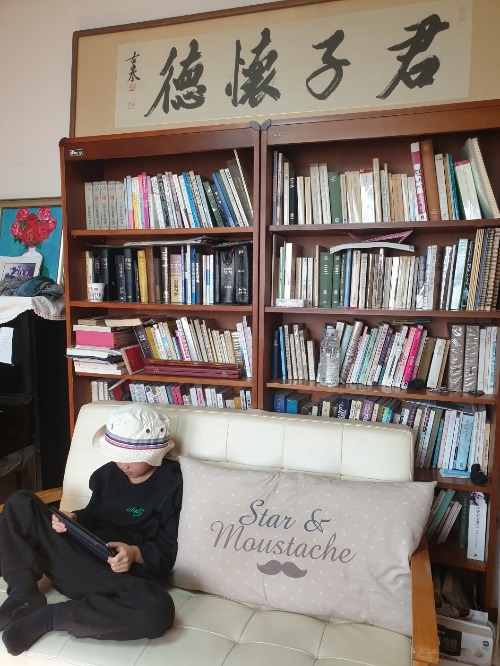데일리스터디
웃음의 종류 본문
Types of Laughter in English
English has many words to describe different types of laughter, each with unique nuances depending on intensity, sound, and situation. Here are the main vocabulary words and their differences:
1. Smile (미소)
Meaning: A quiet facial expression where the mouth curves slightly upward. No sound is made.
Situation: Used to express kindness, politeness, or mild happiness.
Example: "She gave a polite smile to the stranger."
2. Grin (활짝 웃다)
Meaning: A broad smile that often shows teeth. More energetic than a smile.
Situation: Shows joy, playfulness, or sometimes mischievous intent.
Example: "He grinned after telling a joke."
3. Chuckle (낄낄거리다)
Meaning: A quiet, short laugh, often to oneself.
Situation: Used when mildly amused or noticing something ironic.
Example: "He chuckled while reading the comic strip."
4. Giggle (낄낄 웃다)
Meaning: A light, often silly laugh, typically associated with children or women.
Situation: Occurs when embarrassed, nervous, or being playful.
Example: "The girls giggled during the sleepover."
5. Laugh (웃다)
Meaning: The general term for audible laughter with sound.
Situation: Used in response to humor, happiness, or social interactions.
Example: "Everyone laughed at the comedian's joke."
6. Belly laugh / Guffaw (배꼽 잡고 웃다)
Meaning: A loud, hearty laugh. Guffaw is more sudden and boisterous.
Situation: When something is extremely funny.
Example: "He burst into a belly laugh after watching the funny video."
7. Snicker / Snigger (낄낄 웃다)
Meaning: A sly, often mocking laugh.
Situation: Used when laughing at someone secretly or scornfully.
Example: "They snickered behind the teacher's back."
8. Cackle (날카롭게 웃다)
Meaning: A sharp, harsh laugh, often associated with witches or villains.
Situation: Used for evil or hysterical laughter.
Example: "The witch cackled as she plotted her revenge."
9. Smirk (싱글벙글 웃다)
Meaning: A smug or self-satisfied smile, often with one side of the mouth raised.
Situation: Shows triumph or sarcasm.
Example: "He smirked after winning the argument."
10. Titter (낄낄대다)
Meaning: A nervous or restrained laugh.
Situation: Occurs in awkward or polite situations.
Example: "The audience tittered nervously at his awkward joke."
Summary: Intensity and Nuance of Laughter
| Word | Intensity | Nuance |
|---|---|---|
| Smile | Low | Kindness, politeness |
| Grin | Medium | Playfulness, mischief |
| Giggle | Low | Light-hearted, childish |
| Chuckle | Medium | Quiet amusement |
| Laugh | High | General laughter |
| Belly laugh | Very high | Heartfelt, boisterous |
| Snicker | Low | Mocking, secretive |
| Cackle | High | Evil, hysterical |
These words can vary by context, but understanding their basic differences will enrich your English expressions! 😊
( N.B. 위 콘텐츠는 인공지능 Deepseek 로 제작한 것입니다 )
'메모' 카테고리의 다른 글
| Mac ? (0) | 2025.05.06 |
|---|---|
| 셰익스피어의 드라마 (1) | 2025.05.06 |
| pigeon 과 dove (0) | 2025.05.05 |
| rabbit 과 hare (0) | 2025.05.05 |
| tortoise 와 turtle (0) | 2025.05.04 |

